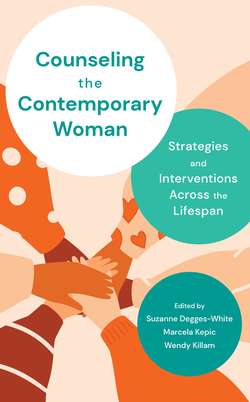Читать книгу Counseling the Contemporary Woman - Suzanne Degges-White - Страница 120
На сайте Литреса книга снята с продажи.
Erikson’s Perspective on Midlife Development
ОглавлениеErikson (1968) proposed that people face specific developmental crises throughout eight predictable stages of life. The crisis that falls at midlife is described as a crisis of generativity versus stagnation. A person facing this developmental task must choose whether or not to give back to others through procreation, community service, professional service, or comparable approaches. Erikson theorized that midlife adults are driven to find meaning in their lives through being productive, but that they must be careful of giving in to self-absorption, which would lead to stagnation and diminished personal growth.
There are few species in which the female outlives her fertility, and there are many hypotheses regarding the value of this arrangement in humans. One idea that has received research support is the notion that women’s roles as grandmothers greatly increases the likelihood of the survival of the species, giving support to a belief that women actually keep the world spinning and the species surviving. Unfortunately, the individual tasks that women must address during midlife seem much more mundane and have much less glamour, but require significant investment of time and energy. Thomas, Mitchell, and Woods (2018) found that the primary tasks of midlife include changing family relationships, the balance between work and personal life, self-exploration and discovery, resource acquisition (financial, housing, etc.), and coping with stressors. As counselors, you may work with clients presenting with one or many of these issues. In addition, some of the specific stressors clients experience may include relationship breakups, health problems, or bereavement.
